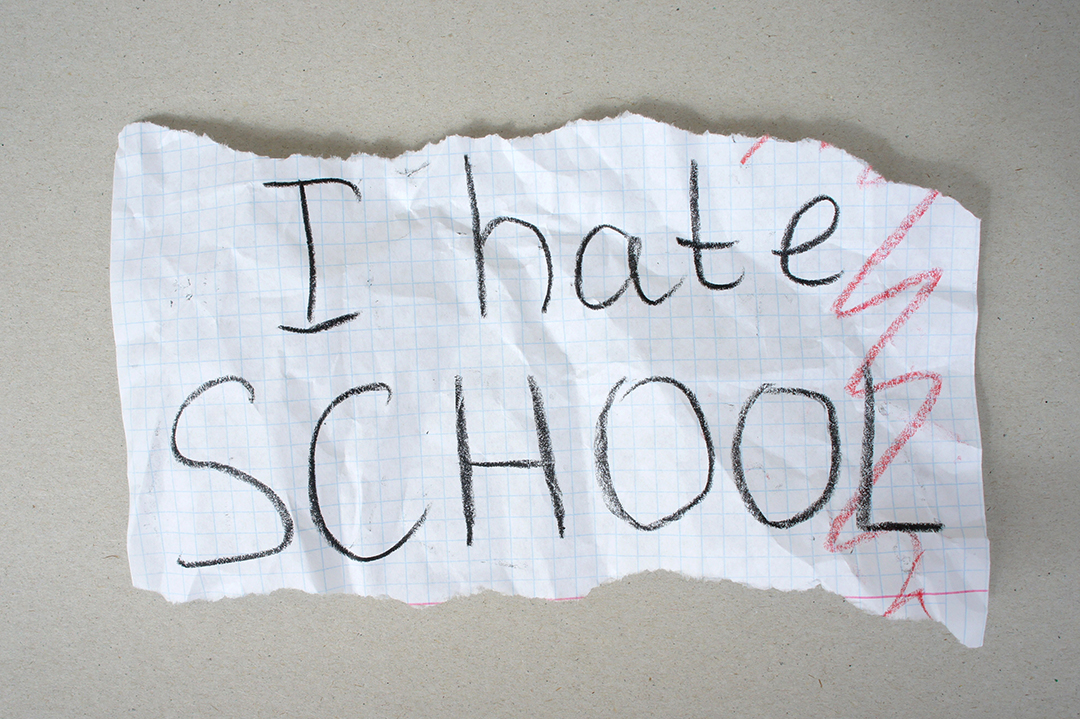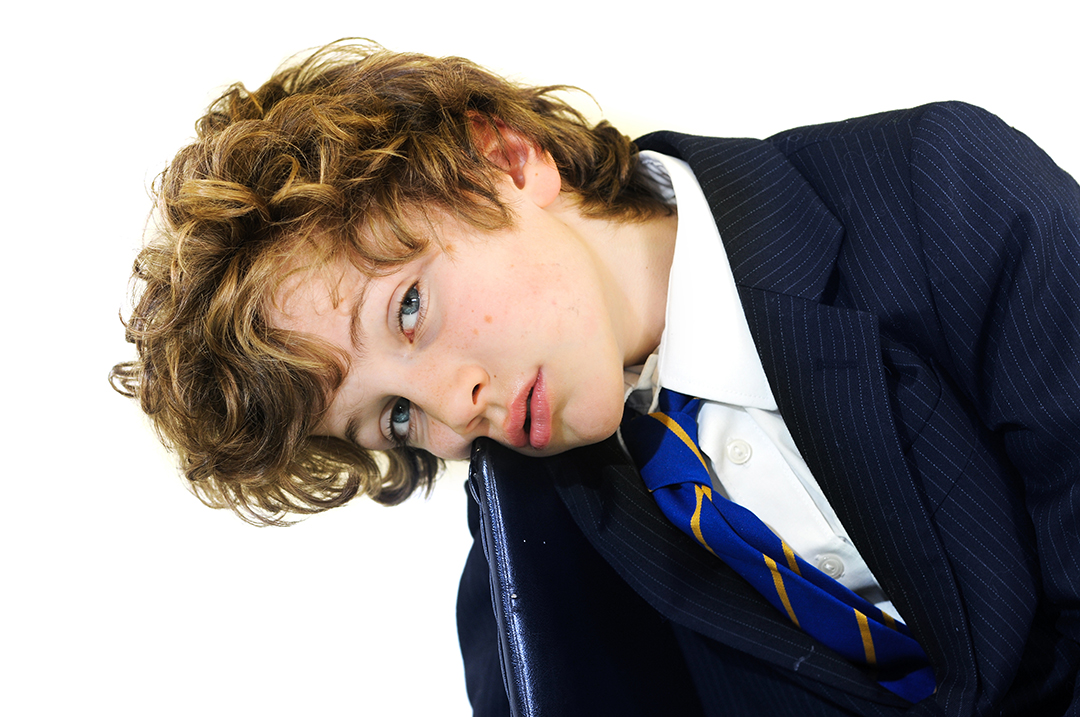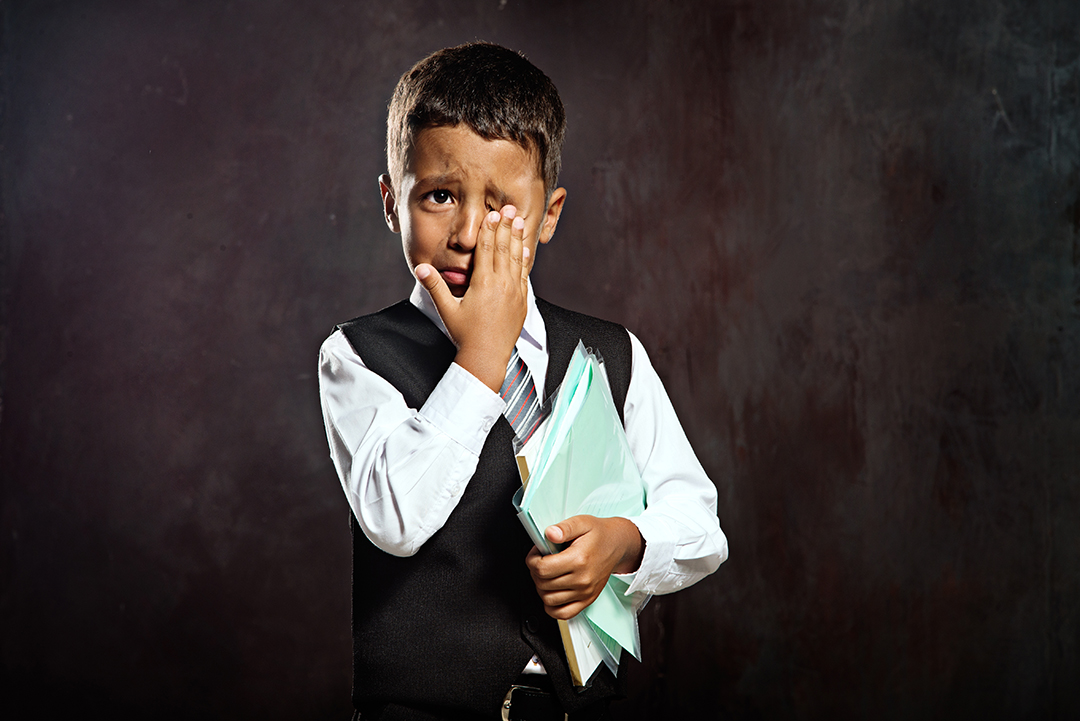Faculty nervousness EBSA are rising considerations that considerably impression college students’ psychological well being and total well-being. This weblog explores the psychological well being penalties of those points.
Understanding EBSA
EBSA refers to extreme problem attending college as a consequence of emotional components. It’s estimated to have an effect on 1-5% of school-age kids and is extra prevalent in secondary colleges1. EBSA is just not merely truancy or college refusal, it displays real emotional misery that hinders college attendance manifesting in numerous methods, together with:
- Full absence from college
- Periodic absences or lacking particular courses
- Problem attending college after weekends or holidays
- Frequent late arrivals or early departures
- Excessive misery when attending college.
It’s essential to notice that EBSA is just not merely a matter of “refusing” college, because the time period “college refusal” would possibly indicate. As a substitute, it displays real emotional misery that makes college attendance difficult for the kid.
The causes of faculty nervousness and EBSA are sometimes complicated and multifaceted. Some frequent components embrace;
- Separation nervousness
- Social nervousness or difficulties with peer relationships
- Tutorial pressures or studying difficulties
- Bullying or unfavourable college experiences
- Transitions (e.g., transferring to a brand new college)
- Household components (e.g., parental sickness, household battle)
- Psychological well being points (e.g., melancholy, nervousness problems).

Psychological Well being Impacts
The cumulative impact of missed college days and studying alternatives can have long-lasting impacts on instructional attainment and future profession prospects. This will contribute to ongoing psychological well being challenges associated to vanity and life satisfaction. Psychological well being points can embrace;
Anxiousness and Despair – One of the vital vital psychological well being impacts of EBSA is the event or exacerbation of tension problems and melancholy. Analysis has proven that kids with college avoidance behaviours are at larger danger for nervousness problems, with separation nervousness and social nervousness being notably frequent2. A longitudinal research discovered that adolescents with college refusal behaviour had been extra more likely to expertise nervousness and melancholy in maturity3.
Social Isolation and Loneliness – EBSA typically results in social isolation as college students miss out on essential peer interactions and social studying alternatives. This isolation can contribute to emotions of loneliness and social nervousness, probably impacting social talent growth4. The shortage of social connection can additional exacerbate present psychological well being points.
Low Self-Esteem and Self-Efficacy – Persistent college avoidance can negatively impression a scholar’s vanity and sense of self-efficacy. As they fall behind academically and socially, they could develop unfavourable self-perceptions and a diminished perception of their skill to deal with school-related challenges5.
Household Stress and Relationship Pressure – EBSA doesn’t simply have an effect on the person scholar; it may possibly additionally create vital stress inside the household unit. Mother and father could expertise elevated nervousness, frustration, and battle with their youngster, probably straining household relationships.
Sleep Disturbances – Anxiousness associated to highschool attendance can result in sleep disturbances, together with problem falling asleep, nightmares, and irregular sleep patterns. Poor sleep high quality can, in flip, exacerbate nervousness and melancholy signs.
Somatic Signs – Many kids with EBSA expertise bodily signs of tension, resembling complications, abdomen aches, and nausea. These somatic complaints can turn into power and intrude with day by day functioning.
Addressing the Psychological Well being Impression
Recognising the numerous psychological well being implications of faculty nervousness and EBSA, it’s vital to implement evidence-based interventions.
Cognitive Behavioural Remedy (CBT) – CBT has proven effectiveness in treating nervousness problems in kids and adolescents, together with these associated to highschool avoidance.
Faculty-Primarily based Interventions – Implementing supportive methods inside the college setting, resembling gradual publicity strategies, secure areas, and versatile studying preparations, may help cut back nervousness and enhance attendance.
Household-Primarily based Interventions – Involving mother and father and addressing household dynamics might be essential in managing EBSA. Guardian coaching and household remedy have proven optimistic outcomes in enhancing college attendance.
Treatment – In some circumstances, notably when nervousness or melancholy is extreme, medicine could also be thought-about as a part of a complete remedy plan.
Multi-Disciplinary Method – A collaborative method involving psychological well being professionals, educators, and households is commonly only in addressing the complicated wants of scholars with EBSA.

Conclusion
Faculty nervousness and EBSA are complicated points that require understanding, endurance, and a coordinated response. The psychological well being impression of faculty nervousness and emotional primarily based college avoidance is critical and multifaceted. It impacts not solely the person scholar but in addition their household and probably their long-term life outcomes.
By implementing evidence-based methods and fostering a supportive college setting, we may help struggling college students overcome their anxieties and re-engage with training. It’s vital to keep in mind that restoration is commonly a gradual course of. Celebrating small successes and sustaining a optimistic, optimistic method could make a big distinction in a toddler’s journey again to common college attendance.
By addressing EBSA successfully, we not solely enhance instructional outcomes but in addition help the general well-being and future prospects of our kids and younger individuals. As educators, mother and father, and psychological well being professionals work collectively, we will create extra inclusive and supportive studying environments that assist all college students thrive, no matter their emotional challenges.
The place subsequent?
ACAMH are working a webinar on 3 October Faculty Anxiousness & Emotional Primarily based Faculty Avoidance that may carry consideration to, and give attention to, the emotional parts of being a pupil or scholar within the journey of education and studying. The session will take sturdy and specific curiosity within the rise in issues of attendance throughout and because the COVID closures, together with rising suspension & exclusion charges within the years main as much as the pandemic, and at current. Audio system and contributors will discover approaches for which there’s proof that “college primarily based nervousness” driving attendance and inclusion issues might be addressed positively, within the curiosity of particular person achievement outcomes and kids’s funding in studying.
Delegates can have unique entry to recordings for 90 days after the occasion, along with slides. Plus you’ll get a personalised CPD certificates by way of e-mail. Don’t overlook as a charity any surplus made is reinvested again as we work to our imaginative and prescient of ‘Sharing greatest proof, enhancing follow’, and our mission to ‘Enhance the psychological well being and wellbeing of younger individuals aged 0-25’.

References
- Heyne, D., Gren-Landell, M., Melvin, G., & Mild-Genitty, C. (2019). Differentiation between college attendance issues: Why and the way? Cognitive and Behavioral Apply, 26(1), 8-34.
- Kearney, C. A., & Albano, A. M. (2004). The purposeful profiles of faculty refusal habits. Conduct Modification, 28(1), 147-161.
Flakierska-Praquin, N., Lindström, M., & Gillberg, C. (1997). Faculty phobia with separation nervousness dysfunction: A comparative 20- to 29-year follow-up research of 35 college refusers. Complete Psychiatry, 38(1), 17-22. - Rubin, Okay. H., Coplan, R. J., & Bowker, J. C. (2009). Social withdrawal in childhood. Annual Overview of Psychology, 60, 141-171.
- Maric, M., Heyne, D. A., de Heus, P., van Widenfelt, B. M., & Westenberg, P. M. (2012). The position of cognition at school refusal: An investigation of automated ideas and cognitive errors. Behavioural and Cognitive Psychotherapy, 40(3), 255-269.
- Ingul, J. M., Klöckner, C. A., Silverman, W. Okay., & Nordahl, H. M. (2012). Adolescent college absenteeism: Modelling social and particular person danger components. Little one and Adolescent Psychological Well being, 17(2), 93-100.
This weblog has been peer reviewed
Additional studying
McCune, N., & Hynes, J. (2005). Ten 12 months follow-up of youngsters with college refusal. Irish Journal of Psychological Medication, 22(2), 56-58.
Kearney, C. A., & Silverman, W. Okay. (1995). Household setting of kids with college refusal habits: A synopsis with implications for evaluation and remedy. The American Journal of Household Remedy, 23(1), 59-72.
Henry, Okay. L., & Thornberry, T. P. (2010). Truancy and escalation of substance use throughout adolescence. Journal of Research on Alcohol and Medication, 71(1), 115-124.
Chase, R. M., & Pincus, D. B. (2011). Sleep-related issues in kids and adolescents with nervousness problems. Behavioral Sleep Medication, 9(4), 224-236.
Crawley, S. A., Caporino, N. E., Birmaher, B., Ginsburg, G., Piacentini, J., Albano, A. M., … & Kendall, P. C. (2014). Somatic complaints in anxious youth. Little one Psychiatry & Human Improvement, 45(4), 398-407.
Fremont, W. P. (2003). Faculty refusal in kids and adolescents. American Household Doctor, 68(8), 1555-1560.
Pina, A. A., Zerr, A. A., Gonzales, N. A., & Ortiz, C. D. (2009). Psychosocial interventions for college refusal habits in kids and adolescents. Little one Improvement Views, 3(1), 11-20.
Kearney, C. A., & Graczyk, P. (2014). A response to intervention mannequin to advertise college attendance and reduce college absenteeism. Little one & Youth Care Discussion board, 43(1), 1-25.
Heyne, D., Sauter, F. M., Van Widenfelt, B. M., Vermeiren, R., & Westenberg, P. M. (2011). Faculty refusal and nervousness in adolescence: Non-randomized trial of a developmentally delicate cognitive behavioral remedy. Journal of Anxiousness Problems, 25(7), 870-878.
Melvin, G. A., & Gordon, M. S. (2019). Antidepressant medicine: Is it a viable and useful adjunct to cognitive-behavioral remedy for college refusal? Cognitive and Behavioral Apply, 26(1), 107-118.
Ingul, J. M., Havik, T., & Heyne, D. (2019). Rising college refusal: A college-based framework for figuring out early indicators and danger components. Cognitive and Behavioral Apply, 26(1), 46-62.


